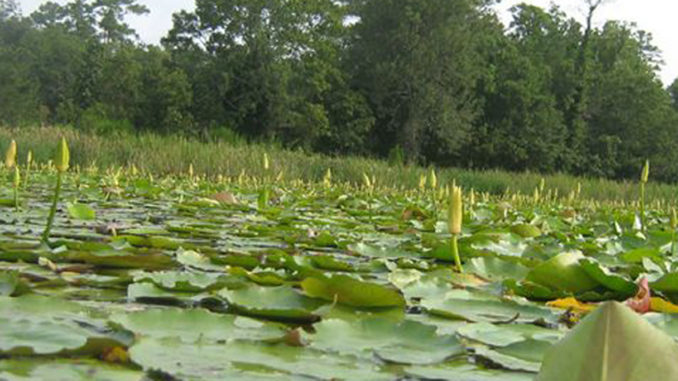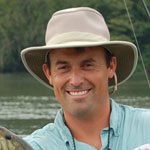
Fish habitat can always benefit from some sort of management technique, and the establishment of shallow cover is a good choice to make. The banana water lily is an ideal waterfowl food during the winter migration through the Carolinas for its variety of nutritive values in the vegetation and from the associative invertebrate community. But fish will benefit just as much, as if not more, than the wintering waterfowl.
For the rest of the year — when the ducks are in Canada — fish will slide into shallow areas covered with this lush vegetation to spawn, forage and hide from larger predators. During the different spawning seasons, the lily pad thickets will be inhabited by these species.
Beginning with crappie in the early spring, followed by largemouth bass and redear sunfish, to bluegill in the summer, the banana water lily will help provide spawning cover.
After spawning, the newly-hatched fry will use the collaboration of stems, leaves, and tubers to hide from the many predators lurking in these shallow lairs. Catfish, bass and sunfish will move into these water lily thickets without looking back. It’s an ideal addition to any pond needing good spawning, foraging and escape cover in its shallows.
Banana water lily should be planted between March and April around the shallow edges and shelves of the pond, in water from one and four feet deep that receives full sunlight. For the best fish habitat, plant colonies should be established in small groups, leaving small areas open or understocked to create some open water. In colonies, plants should be in tight groups no closer than five feet or at an approximate rate between 500 and 1,000 per acre. Avoid areas already densely covered with other aquatic vegetation or with established populations of grass carp.




Be the first to comment